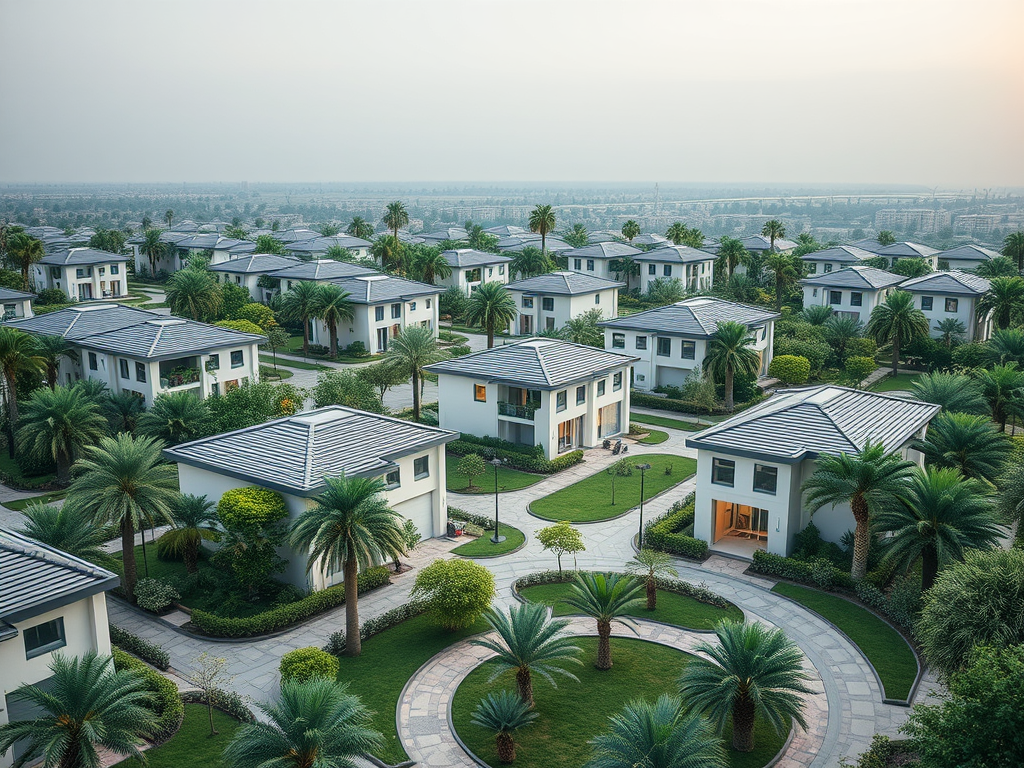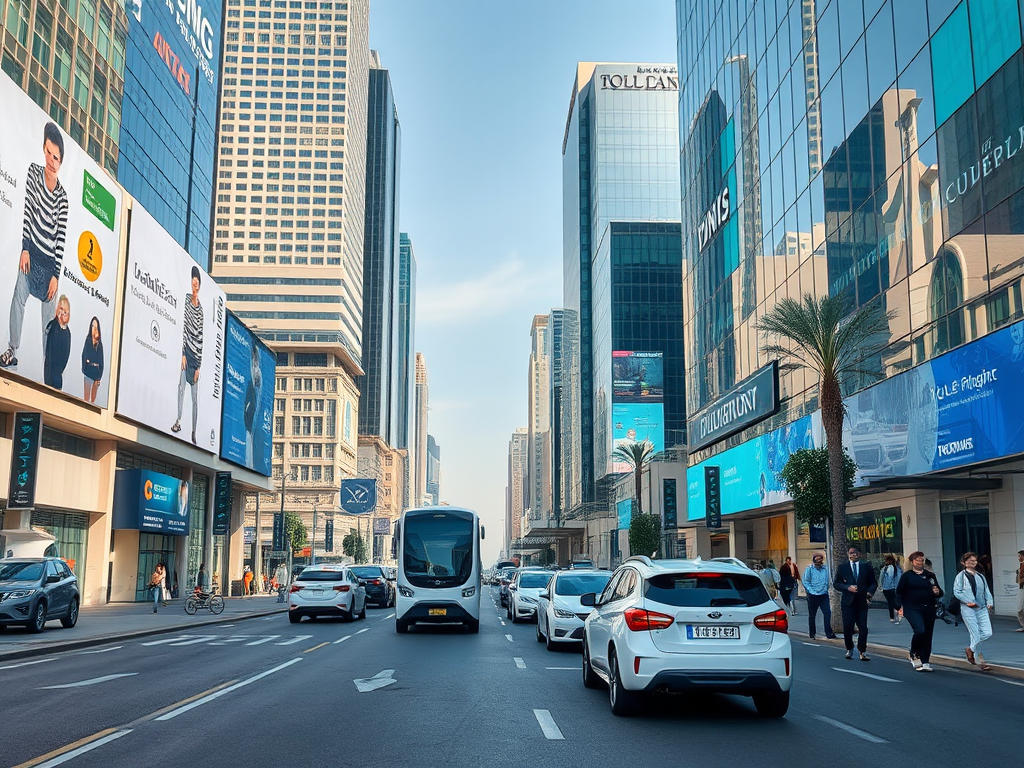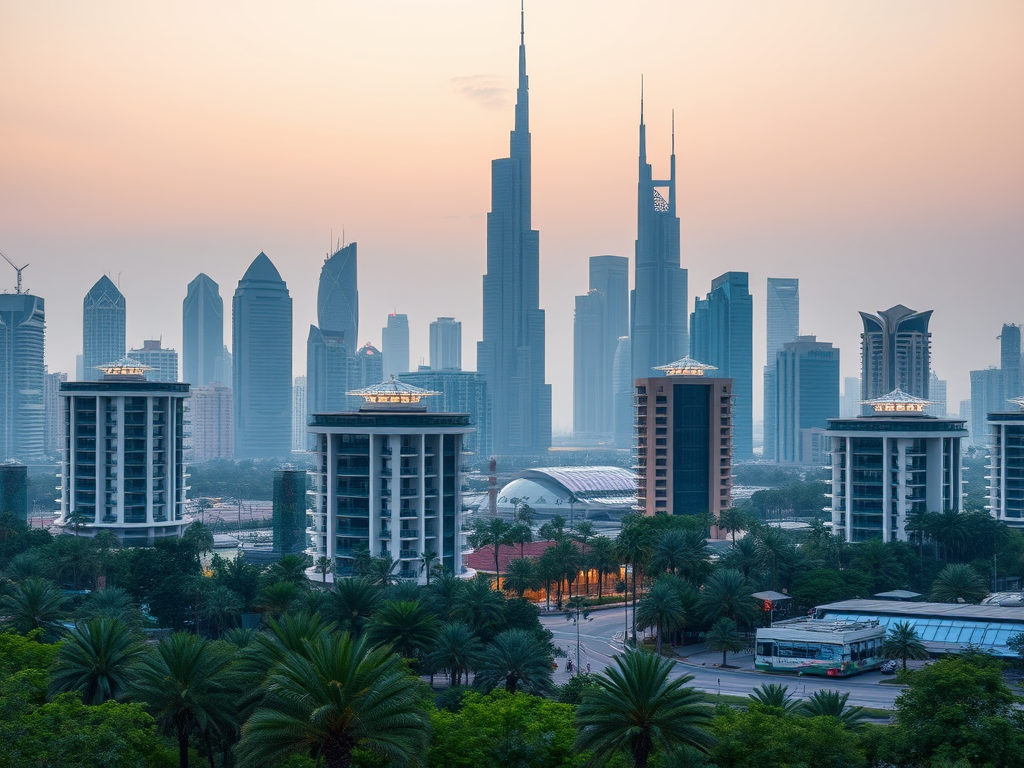Smart cities represent a transformative approach to urban development, integrating technology and data to enhance the quality of life for residents. In Dubai, the integration of smart city principles into real estate development is a promising trend that contributes to efficient resource management, sustainable living, and advanced urban solutions. This article explores how smart cities are revolutionizing Dubai’s real estate landscape, showcasing innovative technologies, enhanced infrastructure, and a focus on sustainability that sets the city apart as a global leader.
What Makes Dubai a Smart City?

Dubai has swiftly positioned itself as a global benchmark for smart city initiatives. The Dubai Smart City strategy aims to transform the city into a world-class example of sustainable urban living. This transformation hinges on the integration of cutting-edge technology into city planning and management, impacting various sectors, including transportation, energy, and healthcare. Key features that define Dubai’s smart city attributes include:
- Data-Driven Decision Making: Utilization of big data analytics for urban planning and policy making.
- Innovative Transportation Solutions: Introduction of autonomous vehicles and smart public transport systems.
- Sustainable Infrastructure: Implementation of green buildings and renewable energy sources.
- Smart Governance: Enhancements in citizen engagement through digital platforms and services.
- Enhanced Connectivity: High-speed internet access across the city for residents and businesses.
The principles of smart city planning profoundly influence Dubai’s real estate development, reshaping how residential and commercial properties are designed, constructed, and managed. This impact can be particularly observed in several key areas:
- Sustainability Initiatives: Sustainable building practices and green certifications are increasingly critical in attracting buyers and investors. Developers now prioritize energy-efficient designs that reduce carbon footprints.
- Mixed-Use Developments: Smart city strategies promote the creation of mixed-use neighborhoods, combining residential, commercial, and recreational spaces to foster community engagement and reduce travel times.
- Increased Technological Integration: Properties are being equipped with smart home technologies such as automated lighting, climate control, and security systems, providing residents with enhanced convenience and safety.
- Data-Driven Insights: Real estate developers utilize data analytics to identify market trends and consumer preferences, allowing for more informed decision-making in investment and project planning.
- Smart Amenities: The introduction of amenities such as smart parks, fitness centers, and communal workspaces enhances the desirability of properties, appealing to the modern lifestyle of residents.
Challenges and Opportunities

While the integration of smart technologies into real estate development in Dubai presents numerous opportunities, it also encounters challenges that stakeholders must address. One major challenge is the high initial costs associated with building smart infrastructure. Developers may also face difficulties in maintaining and upgrading technology as it evolves rapidly. However, embracing these challenges leads to various benefits: Improved property values due to enhanced livability; increased market demand for technologically advanced buildings; and potential government incentives for developers who implement sustainable practices. The convergence of these factors positions Dubai’s real estate market for robust growth in the coming years.
Итог
In summary, smart cities play a pivotal role in the evolution of Dubai’s real estate development, merging advanced technology with sustainable practices. As Dubai continues to embrace smart city principles, property developers will be at the forefront of this transformation, creating environments that enhance lifestyle quality, optimize resource usage, and provide innovative living solutions. The city’s focus on smart development not only enhances its global reputation but also sets a precedent for future urban planning initiatives worldwide.
Часто задаваемые вопросы
1. What are the benefits of smart cities in real estate?
Smart cities provide numerous benefits such as improved sustainability, increased property values, enhanced resident amenities, and reduced operational costs due to technology-driven efficiencies.
2. How does technology influence property management in Dubai?
Technology streamlines property management through automation, data analytics, and enhanced communication channels, making management more efficient and responsive to resident needs.
3. Are smart city projects in Dubai costly for developers?
While initial investment costs can be higher, the long-term benefits, including increased demand and potential government incentives, often justify those investments.
4. How is sustainability integrated into Dubai’s smart city plans?
Sustainability is integrated through the use of renewable energy sources, energy-efficient building practices, and the promotion of green spaces in urban areas.
5. What role does government play in Dubai’s smart city initiatives?
The government actively supports smart city initiatives through regulatory frameworks, funding, and partnerships that encourage innovation in urban development.
